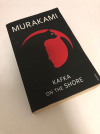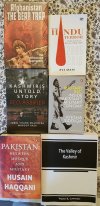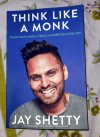View attachment 50941
The first Haruki Murakami book I read was
1Q84 in 2011, when I got my first Kindle reader. I liked the pacing (which was very slow), mystery and his imagination. 'Magical realism' is a convenient sub-genre to fit his books into, but it is much more than that. Most of it is experiential, and goes much beyond mental stimulation alone. I feel his books can be either a hit or a miss, with the readers.
1Q84 remains his best work, I've read so far.
Norwegian Wood and
A Wild sheep chase are a distant second/third. And, I didn't like his
Dance dance dance.
A couple of weeks ago I happened to watch Lee Chang-Dong's brilliant movie adaptation of a Murakami book,
Burning (2018) (the film was also partly inspired by a William Faulkner's story. As the director puts it, "the story of a young Faulkner living in the Murakami world."). I realized then, that it's been a long while since I've read his books. So, continuing from where I left off......







